Last Updated on September 11, 2024 by admin
Introduction to Inbec
Inbec is an innovative antiretroviral medication designed to treat HIV, marking a significant advancement in the management of this chronic virus. This medication is a fixed-dose combination that includes three active ingredients: Abacavir, Dolutegravir, and Lamivudine. Each of these components plays a vital role in suppressing the replication of the virus and improving the overall health of individuals living with HIV.
Abacavir is a nucleoside reverse transcriptase inhibitor (NRTI) that disrupts the replication process of HIV by interfering with the virus’s ability to synthesize DNA. This action is crucial in reducing the viral load, thus enhancing the immune system’s function. Similarly, Lamivudine, another NRTI, complements Abacavir by providing an additional pathway to inhibit viral replication, making Inbec more effective in fighting HIV.
The third element, Dolutegravir, belongs to a class of drugs known as integrase strand transfer inhibitors (INSTIs). Dolutegravir works by blocking the integrase enzyme, which is essential for the incorporation of viral DNA into the host’s genome. By inhibiting this step, Dolutegravir effectively prevents the virus from proliferating, thereby playing a crucial role in the efficacy of Inbec.
Inbec is generally prescribed as part of a comprehensive treatment plan tailored to enhance the patient’s immune response and reduce the likelihood of complications associated with HIV. This combination therapy not only aids in lowering the viral load but also contributes to a better quality of life for individuals affected by HIV. With its unique composition, Inbec has established itself as a cornerstone in the ongoing efforts to combat HIV, reflecting its significance in modern antiretroviral therapy.
USES OF ABACAVIR (which is in inbec tablet)
Inbec is a fixed-dose combination medication used primarily in the treatment of HIV-1 infection. Its formulation contains three active ingredients—abacavir, dolutegravir, and lamivudine—which work synergistically to suppress the replication of the virus. One of the main benefits of Inbec is its effectiveness in reducing viral load, which is the quantity of HIV present in the blood. By lowering the viral load, Inbec helps to improve immune function and delay the progression of HIV to AIDS.
In addition to viral load reduction, Inbec has been shown to positively impact CD4 cell counts. CD4 cells, a type of white blood cell that plays a crucial role in the immune system, are often depleted in individuals living with HIV. A rise in CD4 counts indicates an improvement in the immune response, which is essential for maintaining health and preventing opportunistic infections.
Inbec is typically administered as part of a comprehensive antiretroviral therapy regimen. The combination of its components allows for a once-daily dosing schedule, enhancing adherence to treatment. This aspect is particularly important as consistent use of antiretroviral therapy can lead to sustained viral suppression, improving the overall quality of life for those living with HIV.
For individuals co-infected with Hepatitis B, considerations around the use of Inbec are paramount. While this medication is effective for HIV treatment, it is critical to monitor Hepatitis B viral load, as the lamivudine component has activity against Hepatitis B. Hence, healthcare providers must evaluate the patient’s overall health and co-infections to customize the treatment plan properly, ensuring both viral loads are managed effectively.
Directions for Use
Inbec is an antiretroviral medication that is prescribed for the treatment of HIV-1 infection. Proper adherence to the medication regimen is critical for the drug’s efficacy. The recommended dosage for adults and pediatric patients weighing at least 30 kg is one tablet daily. It is imperative to take Inbec at the same time every day to maintain consistent blood levels of the medication, thus maximizing its therapeutic effects.
While Inbec can be taken with or without food, patients are advised to assess their tolerance to the medication. For those who might experience gastrointestinal discomfort, ingestion with food may mitigate such effects. It is recommended to choose a specific time, such as during breakfast or dinner, for taking the medication to help reinforce the habit of daily intake.
Patients are encouraged to develop a routine that incorporates Inbec into their daily lives. For instance, placing the medication near other daily necessities, such as toothbrushes or coffee mugs, may serve as a useful reminder. Some users find it beneficial to set daily alarms or use medication management apps that remind them when it is time to take the medication. This proactive approach can significantly enhance adherence to the prescribed schedule and prevent missed doses, which is crucial in the long-term management of HIV.
It is vital to discuss any concerns or unusual side effects experienced while taking Inbec with a healthcare provider. Patients should never change their dosing schedule or discontinue the medication without consulting their physician, as improper use can significantly interfere with the effectiveness of HIV treatment.
Benefits of Inbec
Inbec presents several advantages as an effective treatment option for individuals living with HIV. One notable benefit is its once-daily dosing regimen, which significantly enhances adherence to therapy. For many patients, maintaining a complex medication schedule can prove challenging, but the simplicity of taking Inbec once a day makes it easier for individuals to incorporate it into their daily routines. This convenience can lead to improved adherence rates, which is a critical component in achieving viral suppression and reducing the risk of transmission.
Another advantage of Inbec lies in its potential for fewer side effects in comparison to traditional HIV medications. While every individual may respond differently to treatment, clinical studies have indicated that Inbec may cause less frequent or less severe side effects. For many patients, this can translate to a more tolerable treatment experience, minimizing disruptions to their quality of life. The improved tolerability often encourages continued use, which is essential for effective long-term management of the virus.
Furthermore, Inbec has demonstrated robust efficacy in achieving and maintaining viral suppression among patients. The combination of its active ingredients works synergistically to inhibit HIV replication, leading to lower viral loads. This effectiveness is vital not only for the health of the individual but also for public health efforts aimed at reducing the spread of HIV. As treatment advances, achieving sustained viral suppression is increasingly recognized as a primary goal, and Inbec’s performance in this regard has garnered positive evaluations from healthcare professionals.
In conclusion, Inbec offers significant benefits as an HIV treatment option through its once-daily dosing, favorable side effect profile, and proven efficacy in long-term viral suppression, making it a valuable option for many individuals managing HIV.
Storage Recommendations for Inbec
Proper storage of Inbec is essential to maintain its effectiveness and safety throughout its shelf life. This medication should be stored at room temperature, specifically between 20°C to 25°C (68°F to 77°F). It is critical to avoid exposure to extreme temperatures, as both excessive heat and cold can degrade the active ingredients, compromising the medication’s potency. To minimize temperature fluctuations, store Inbec in a location away from direct sunlight and heat sources, such as radiators or stoves.
Additionally, humidity levels play a significant role in the storage of pharmaceutical products. It is advisable to keep Inbec in a dry environment, away from areas like bathrooms or kitchens where moisture can accumulate. High humidity can lead to mold growth or tablet disintegration, both of which can affect the medication’s efficacy. Consider utilizing a desiccant or moisture-absorbing pouch within the storage container to further safeguard against humidity if the packaging does not already include such protections.
Moreover, ensuring that children and pets cannot access Inbec is vital. Always store the medication in its original container, which should be tightly closed, and place it in a secure location, preferably a locked cabinet. If the medication is no longer needed or has expired, it is important to dispose of it properly. Do not throw Inbec in household trash or flush it down the toilet, as this may harm the environment. Instead, consult local medication take-back programs or follow recommended disposal guidelines provided by pharmaceutical authorities to ensure safe and responsible disposal.
Medicinal Benefits of Inbec
Inbec is a prescription medication primarily utilized in the treatment of human immunodeficiency virus (HIV) infection. Formulated as a combination of abacavir, dolutegravir, and lamivudine, Inbec is integral for managing HIV effectively. One of the primary medicinal benefits of Inbec is its ability to enhance the quality of life for individuals living with HIV. By suppressing the viral load, the medication helps maintain the immune system, allowing patients to lead healthier and more active lives. Improved adherence to the regimen results in fewer complications associated with the virus, thus promoting overall well-being.
Inbec is designed for convenient once-daily dosing, which plays a crucial role in encouraging consistent uptake among patients. The ease of administration minimizes the likelihood of missed doses, subsequently increasing the effectiveness of the treatment. The medication’s potency in inhibiting HIV replication significantly contributes to improved life expectancy. When taken as prescribed, the consistent viral suppression provided by Inbec allows individuals with HIV to live longer and healthier lives. This extended life expectancy is a testament to the advancements in HIV treatment regimens, where modern antiretroviral therapies continue to evolve.
Furthermore, Inbec has demonstrated a positive impact on the body’s immune response. By reducing the amount of HIV in the body, the medication enhances the immune system’s capacity to fight off infections and diseases. Patients on a stable Inbec regimen can experience a restoration of immune function, which can be particularly beneficial in mitigating other health risks associated with HIV. Overall, the medicinal benefits of Inbec underscore its pivotal role in transforming the management of HIV, not only in terms of survival but also in improving day-to-day quality of life.
Warnings and Precautions
Inbec is a combination medication used in the management of HIV and, like any pharmaceutical agent, it carries certain warnings and precautions critical to patient safety. One of the primary concerns involves the potential for allergic reactions to components of the medication, including abacavir, dolutegravir, and lamivudine. Patients must be thoroughly screened for hypersensitivity reactions, especially for those with a history of allergies to any of the ingredients. Symptoms of such reactions may include fever, rash, and gastrointestinal distress, and the presence of these symptoms necessitates immediate medical attention.
Furthermore, individuals with pre-existing medical conditions should exercise caution when using Inbec. For instance, those with a history of liver disease require special consideration, as liver function could be adversely affected during treatment. Similarly, individuals with a history of psychiatric disorders may face heightened risks, as certain components of Inbec could exacerbate these conditions. Clinicians should closely monitor these patients throughout their treatment regimen to promptly address any emergent issues.
Regular follow-ups and monitoring by healthcare providers are essential to ensure safe and effective treatment using Inbec. Blood tests are typically recommended to evaluate kidney and liver function and to assess for any possible changes in the patient’s health status. Moreover, healthcare providers can effectively manage any side effects or complications that arise during treatment, ensuring a robust support system for the patient. It is advisable for patients to report any unusual symptoms or concerns they may have, as proactive communication enhances the overall treatment experience.
Drug Interactions and Interactions Checker List
Inbec, a combination medication used primarily for the treatment of HIV-1 infection, can interact with various medications, potentially altering their effectiveness or increasing the risk of adverse effects. It is essential for patients and healthcare providers to be aware of these interactions to facilitate safe and effective treatment regimens. Common medications that may interact with Inbec include antacids, proton pump inhibitors, and certain anticonvulsants.
Antacids containing aluminum, magnesium, or calcium can affect the absorption of the components of Inbec, particularly when taken simultaneously. To mitigate this interaction, it is recommended to space the administration of Inbec and antacids by at least two hours. Proton pump inhibitors, such as omeprazole, may also influence the drug levels of Inbec, thereby altering therapeutic efficacy. Caution and monitoring are advised for those on both therapies.
Furthermore, anticonvulsants like carbamazepine and phenytoin can significantly decrease the plasma concentrations of the active components of Inbec, leading to reduced antiviral efficacy. This necessitates careful adjustment of Antiretroviral Therapy (ART) and potentially using alternative anticonvulsants with less interaction potential. Patients must always disclose all medications, including over-the-counter drugs and supplements, to their healthcare provider to assess potential drug-drug interactions adequately.
Utilizing drug interaction checkers is a practical method to ensure safe co-administration of medications alongside Inbec. These tools can provide detailed interactions and recommendations to help in decision-making. Regular reviews and consultations with a healthcare professional are critical to avoiding harmful interactions and ensuring optimal therapeutic outcomes. Monitoring for signs of diminished efficacy or toxicity is also vital in maintaining patient health as the treatment evolves.
Side Effects of Inbec
Inbec, a medication commonly used for the treatment of HIV, can have various side effects that patients should be aware of. While many individuals tolerate Inbec well, some may experience adverse reactions that can be classified as either common or serious. Understanding these side effects is critical for patients and caregivers in ensuring effective management of the treatment process.
Common side effects of Inbec often include nausea, diarrhea, fatigue, and headache. These symptoms are typically mild and may lessen as the body adjusts to the medication. Patients experiencing these side effects should maintain communication with their healthcare provider to discuss possible adjustments to dosage or alternative treatments if these symptoms become bothersome. Staying hydrated and consuming light, bland meals can help alleviate mild gastrointestinal disturbances.
On the other hand, patients should also be cognizant of more serious side effects that may occur. These can include allergic reactions characterized by rash, itching, or difficulty breathing. Hepatic issues such as jaundice or dark urine, as well as lactic acidosis, although rare, are also notable. Symptoms of lactic acidosis could manifest as severe fatigue, muscle pain, or breathing difficulties. Should any of these symptoms arise, it is crucial to seek immediate medical attention.
To manage any mild side effects encountered, individuals are encouraged to monitor their health regularly, keep a diary of symptoms, and communicate any significant changes to their healthcare provider promptly. A well-informed approach, including understanding the side effects associated with Inbec, can greatly enhance the treatment experience for individuals living with HIV.
Common side effects of Inbec
- Fatigue
- Headache
- Nausea
- Abdominal pain
- Vomiting
- Fever
- Abnormal dreams
- Diarrhea
- Decreased appetite
- Rash
- Lethargy
- Sleep disorder
- Ear, nose, and throat (ENT) infections
- Dizziness
- Muscle pain
- Hypersensitivity
- Altered liver function test
- Severe side effects of Inbec
- Heart attack
- Immune reconstitution syndrome
- Redistribution/accumulation of body fat
General Warnings and Safety Advice
When undergoing treatment with Inbec, it is crucial for patients to prioritize their overall health and be vigilant about any changes after the commencement of medication. Inbec is an antiretroviral that helps manage HIV effectively; however, certain lifestyle adjustments may enhance the benefits of the treatment while ensuring greater safety.
Patients are encouraged to maintain a healthy lifestyle that includes a balanced diet, regular exercise, and adequate hydration. Engaging in physical activity not only improves overall well-being but aids in managing potential side effects associated with Inbec. Additionally, routine health check-ups play an essential role in monitoring any fluctuations in health status. Regular consultations with healthcare professionals, including doctors and pharmacists, can facilitate timely intervention should any adverse effects arise.
It is also advised to watch for signs of reactions or side effects typical of antiretroviral therapy, such as rash, fatigue, or gastrointestinal disturbances. Should any concerning symptoms manifest, patients should seek immediate guidance from their healthcare providers. Open dialogue with medical professionals is vital; they can provide tailored advice and adjustments to the therapy regimen if necessary.
Moreover, it is imperative to disclose to healthcare providers any history of allergies, liver issues, or concurrent medications being used. Inbec can interact with other pharmaceuticals, thus emphasizing the need for transparency regarding all medications being taken. Patients should refrain from self-diagnosing or altering their treatment plans without professional advice.
By taking these precautions and maintaining communication with healthcare professionals, patients can play an active role in managing their health while on Inbec, ultimately leading to better treatment outcomes and improved quality of life.
SAFETY ADVICE
warnings
![]() Alcohol
Alcohol
CAUTION
Caution is advised when consuming alcohol with Inbec Tablet. Please consult your doctor.
warnings
![]() Pregnancy
Pregnancy
CONSULT YOUR DOCTOR
Inbec Tablet may be unsafe to use during pregnancy. Although there are limited studies in humans, animal studies have shown harmful effects on the developing baby. Your doctor will weigh the benefits and any potential risks before prescribing it to you. Please consult your doctor.
warnings
![]() Breast feeding
Breast feeding
CONSULT YOUR DOCTOR
Inbec Tablet is probably unsafe to use during breastfeeding. Limited human data suggests that the drug may pass into the breastmilk and harm the baby.
warnings
![]() Driving
Driving
CONSULT YOUR DOCTOR
It is not known whether Inbec Tablet alters the ability to drive. Do not drive if you experience any symptoms that affect your ability to concentrate and react.
warnings
![]() Kidney
Kidney
CAUTION
Inbec Tablet should be used with caution in patients with kidney disease. Dose adjustment of Inbec Tablet may be needed. Please consult your doctor.
warnings
![]() Liver
Liver
CAUTION
Inbec Tablet should be used with caution in patients with liver disease. Dose adjustment of Inbec Tablet may be needed. Please consult your doctor.
warnings
![]() CHILDREN CAUTION
CHILDREN CAUTION
UNSAFE
Inbec Tablet is not recommended for use in children and adolescents below 18 years.
 Inbec Tablet Habit Forming : NO
Inbec Tablet Habit Forming : NO
![]() expert advice
expert advice
WHAT IF YOU FORGET TO TAKE INBEC TABLET?
If you miss a dose of Inbec Tablet, take it as soon as possible. However, if it is almost time for your next dose, skip the missed dose and go back to your regular schedule. Do not double the dose.
- Abacavir
In combination with other medicines, it is used for the treatment of HIV infections. - Take it with food, as this increases the absorption of the medicine into the body.
- Abacavir may cause dizziness or sleepiness. Do not drive or do anything requiring concentration until you know how it affects you.
- You may still develop infections or other illnesses associated with viral infection while taking this medication.
- You can also pass on HIV or HBV to others. Don’t share needles or personal items that can have blood or body fluids on them.
- During treatment and for at least six months after stopping this medicine, regular blood tests are needed to monitor your liver function, level of hepatitis B virus and blood cells in your blood.
Dolutegravir - Take Dolutegravir with or without food, preferably at the same time everyday.
- Do not skip any doses and finish the full course of treatment even if you feel better.
- Do not take antacids or calcium supplements an hour before or two hours after taking Dolutegravir.
- Your doctor may monitor your liver function regularly during treatment. Inform your doctor if you notice yellowing of eyes or skin, dark urine, or stomach pain.
- Inform your doctor if you are pregnant, planning pregnancy or breastfeeding.
Lamivudine - You have been prescribed Lamivudine for the treatment of chronic hepatitis B virus (HBV) infection.
- In combination with other medicines, it is used for the treatment of HIV infections.
- Take it with food, as this increases the absorption of the medicine into the body.
- Lamivudine may cause dizziness or sleepiness. Do not drive or do anything requiring concentration until you know how it affects you.
- You may still develop infections or other illnesses associated with viral infection while taking this medication.
- You can also pass on HIV or HBV to others. Don’t share needles or personal items that can have blood or body fluids on them.
- During treatment and for at least six months after stopping this medicine, regular blood tests are needed to monitor your liver function, level of hepatitis B virus and blood cells in your blood.
Here are 36 frequently asked questions about Inbec along with their answers:
1. What is Inbec used for?
A: Inbec is a combination antiretroviral medication used to treat HIV-1 infection in adults and children who weigh at least 88 lbs (40 kg).
2. When is the best time to take Inbec?
A: Inbec is typically taken once daily at the same time each day, with or without food.
3. What are the long-term side effects of Inbec?
A: Long-term side effects may include:
- Liver damage
- Kidney issues
- Lactic acidosis
- Bone thinning (osteopenia or osteoporosis)
4. Can you provide a review of Inbec?
A: Patients report Inbec as an effective once-daily pill for controlling HIV. Many appreciate the convenience, but some experience side effects like headaches, nausea, and insomnia.
5. What are the common uses of Inbec?
A: Inbec is used to manage HIV-1 infection by lowering the viral load and increasing CD4 counts, improving the immune system.
6. What is the recommended dosage of Inbec?
A: The recommended dose is one tablet once daily, containing:
- 50 mg dolutegravir
- 600 mg abacavir
- 300 mg lamivudine
7. Is Inbec safe to use?
A: Inbec is generally safe when prescribed, but it requires screening for HLA-B*5701 due to the risk of abacavir-related hypersensitivity reactions.
8. Does Inbec cure HIV?
A: No, Inbec does not cure HIV but helps to control the virus and prevents the progression to AIDS when taken as prescribed.
9. Is Inbec safe in pregnancy?
A: Inbec can be used in pregnancy, but it’s essential to consult your healthcare provider, as the safety of dolutegravir during the first trimester has been a concern.
10. Can Inbec be used in children?
A: Yes, Inbec is approved for use in children who weigh 40 kg (88 lbs) or more.
11. What if I miss a dose of Inbec?
A: Take the missed dose as soon as you remember, but if it’s close to the time for your next dose, skip the missed dose. Do not double up.
12. Can I stop taking Inbec if I feel better?
A: No, stopping Inbec can lead to viral resistance and a rebound in viral load. Always consult your doctor before stopping any HIV medication.
13. What are the uses of Inbec?
A: Inbec is used as part of combination therapy to reduce the viral load in HIV-1 infected individuals and to improve their immune system function.
14. Are there alternative medications to Inbec?
A: Yes, alternatives include Biktarvy, Genvoya, and Atripla, among others. Your doctor will recommend what’s best for your health needs.
15. Can Inbec interact with other medications?
A: Yes, Inbec can interact with several drugs, including:
- Metformin
- Antacids containing magnesium or aluminum
- Rifampin
- Dofetilide
Always inform your healthcare provider of all medications you are taking.
16. How long does it take for Inbec to show results?
A: Viral load reduction usually begins within 4 to 8 weeks of starting treatment. It may take several months to reach an undetectable level.
17. What precautions should be taken while using Inbec?
A: Regular monitoring of liver function, kidney function, and blood cell counts is necessary. Avoid excessive alcohol and always screen for the HLA-B*5701 marker.
18. Where can I get more information about Inbec?
A: For more detailed information, visit resources like Drugs.com or the FDA website.
19. What is the success rate of Inbec?
A: Clinical trials have shown that Inbec is highly effective, with around 90% of patients achieving undetectable viral levels within 24 to 48 weeks of therapy.
20. Can Inbec cause weight gain?
A: Yes, weight gain has been reported in some patients, particularly with the use of integrase inhibitors like dolutegravir in Inbec.
21. Can Inbec cause liver problems?
A: Yes, liver problems are a potential side effect, especially in patients with Hepatitis B or C co-infection.
22. Does Inbec require genetic testing?
A: Yes, testing for the HLA-B*5701 gene is required before starting Inbec to reduce the risk of hypersensitivity reactions.
23. What are the signs of a hypersensitivity reaction to Inbec?
A: Symptoms may include:
- Fever
- Rash
- Nausea
- Shortness of breath
Seek medical attention immediately if you experience any of these.
24. Does Inbec interact with alcohol?
A: While Inbec does not directly interact with alcohol, excessive alcohol use can increase the risk of liver damage.
25. Can Inbec cause kidney problems?
A: Kidney problems are rare but can occur. Regular kidney function tests are recommended.
26. Can I take antacids with Inbec?
A: Antacids containing magnesium or aluminum can reduce the absorption of dolutegravir in Inbec. Take them 2 hours before or 6 hours after Inbec.
27. Does Inbec affect mental health?
A: Some patients report depression, anxiety, or sleep disturbances as side effects. Inform your healthcare provider if these occur.
28. Is Inbec effective in people with a low CD4 count?
A: Yes, Inbec is effective in increasing CD4 counts even in patients with initially low levels.
29. What is lactic acidosis, and is it linked to Inbec?
A: Lactic acidosis is a rare but serious side effect where lactate builds up in the blood. Symptoms include extreme tiredness, weakness, and breathing difficulties.
30. Can I take Inbec if I have Hepatitis B?
A: Patients with Hepatitis B need careful monitoring, as stopping Inbec could cause a Hepatitis B flare.
31. Can Inbec be used as PrEP?
A: Inbec is not approved for use as pre-exposure prophylaxis (PrEP).
32. Can I travel with Inbec?
A: Yes, Inbec can be taken while traveling. Always keep it in your carry-on and ensure you have enough medication for the trip.
33. What lifestyle changes should I make while taking Inbec?
A: Eating a balanced diet, regular exercise, and avoiding smoking and alcohol can help manage side effects and improve overall health.
34. Does Inbec affect fertility?
A: There is no evidence that Inbec affects fertility in men or women.
35. Can I take Inbec with other HIV medications?
A: Inbec should not be combined with other medications containing dolutegravir, abacavir, or lamivudine to avoid overdose.
36. what is Inbec Tablet Price in India?
A: Inbec TABLET is available at net rate 3099 on HIVHUB.IN, which provides free shipping all over India and also gives cash on delivery, MRP of Inbec in the market is 5832.85.
References:
These questions and answers aim to provide a comprehensive understanding of Triumeq for HIV treatment.
References:
- KD Tripathi, Essentials of Medical Pharmacology, Antiviral drugs, 7th edition, 2013, 807-808.
- Goodman & Gilman’s, The Pharmacological Basis of Therapeutics, Antiretroviral agents and treatment of HIV infection, 12th edition, 2011, 1635-1636.
- GlaxoSmithKline, Electronic medicines compendium (emc), [ Revised on Jan 2021] [ Accessed on 23rd July 2021], https://www.medicines.org.uk/emc/files/pil.3318.pdf

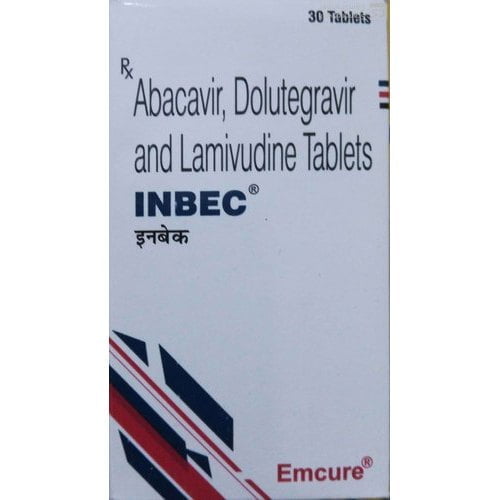
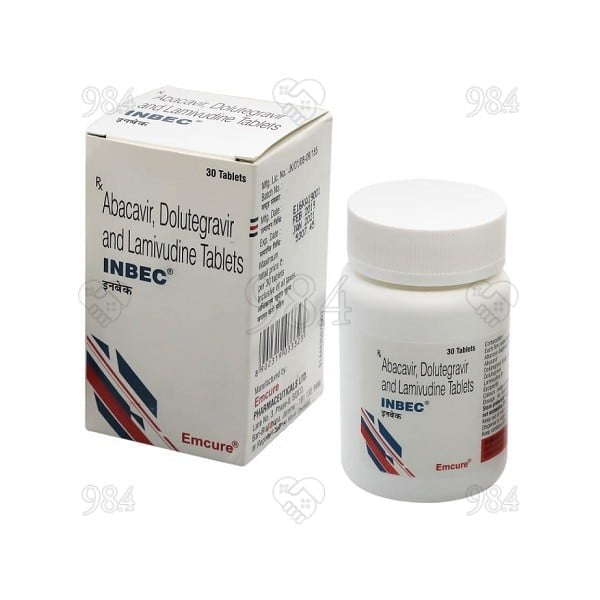
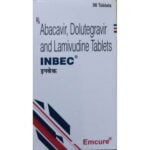
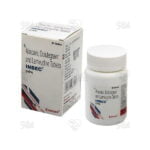
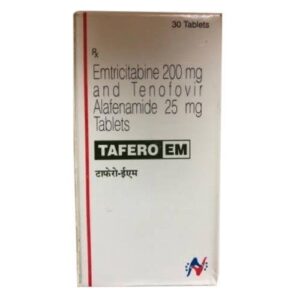
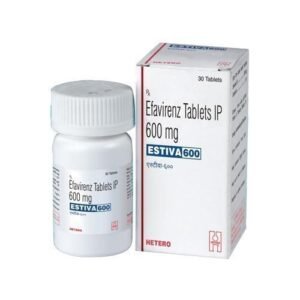
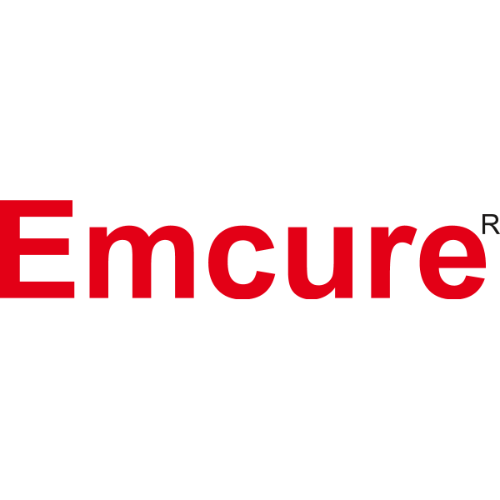
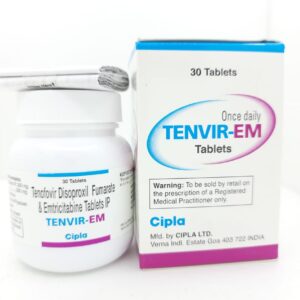

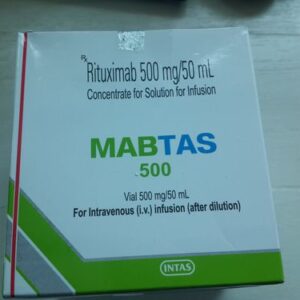
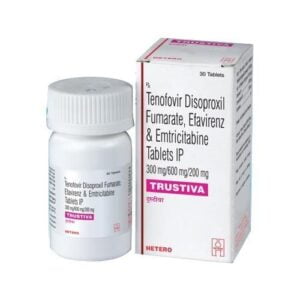
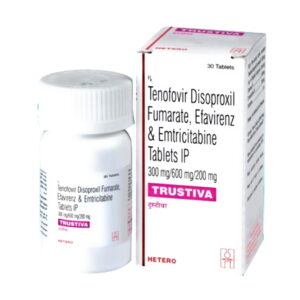
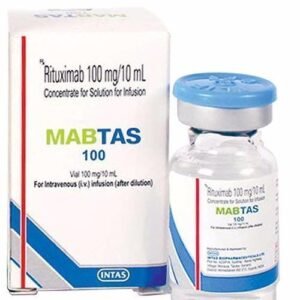
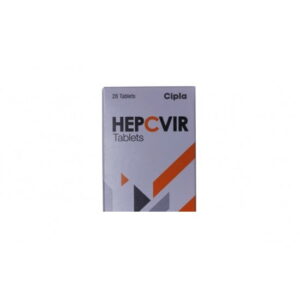
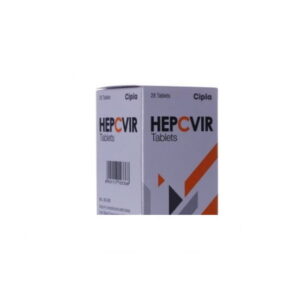

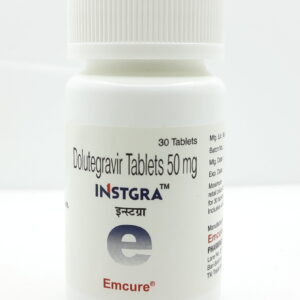
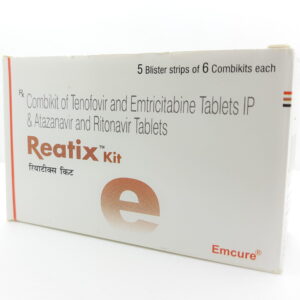
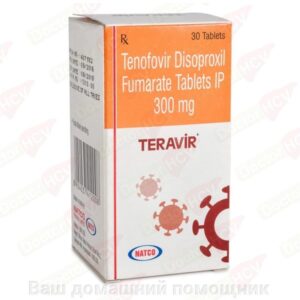
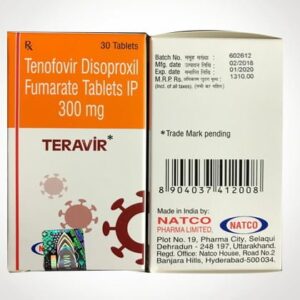
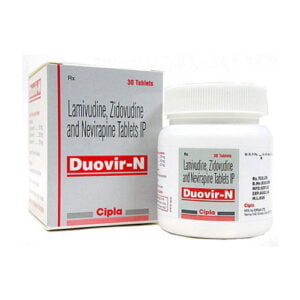
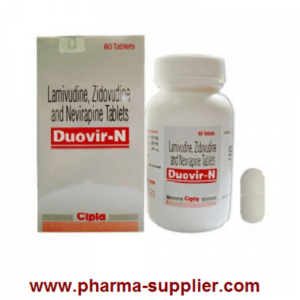
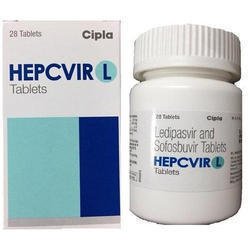
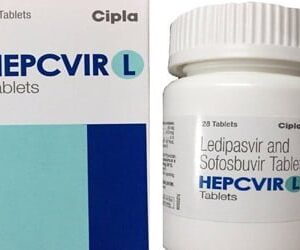
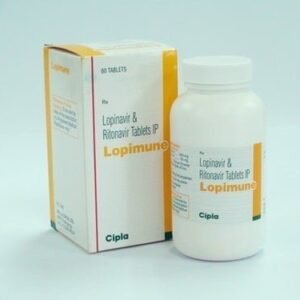
suresh –
good price
kamal –
better service n price
nandela –
all good but delivery day 4 its much day